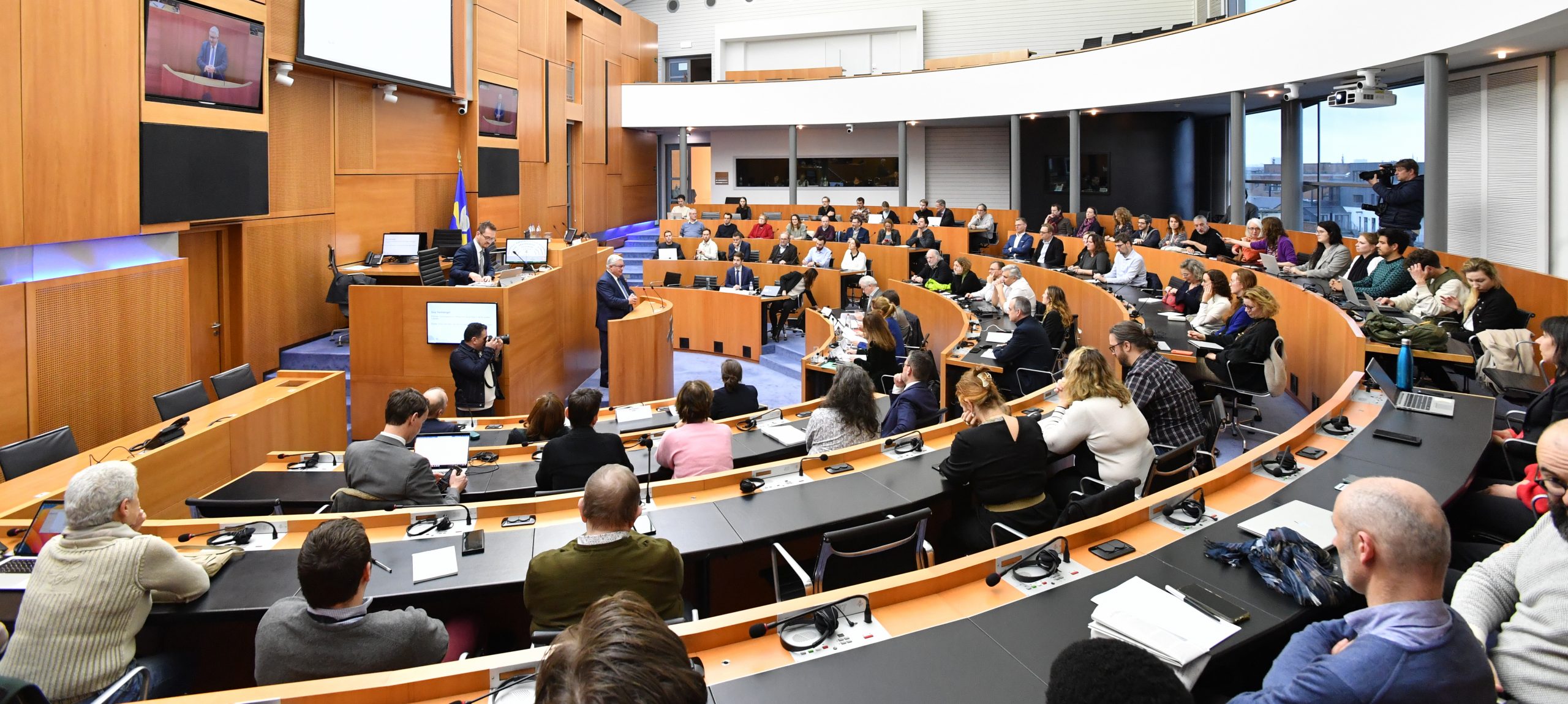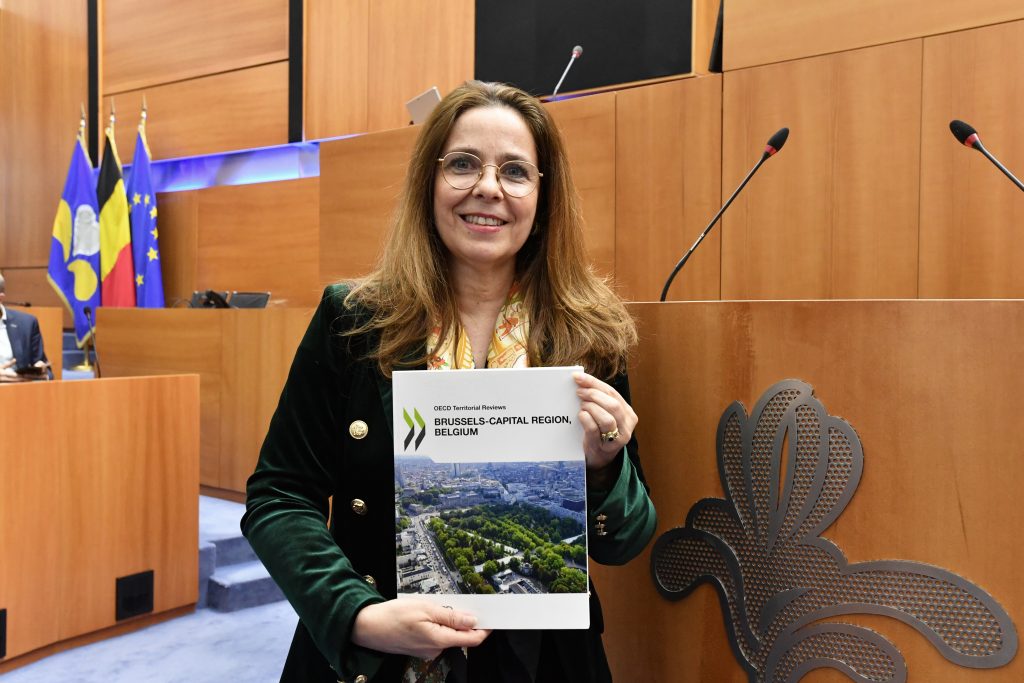Presentation of the final report of the Metropolitan Review
On 6 February, the final report of the Metropolitan Review on the Brussels-Capital Region (BCR) was launched during an event in the Brussels Parliament. This report is the result of intensive and constructive cooperation between various Brussels administrations and the Organisation for Economic Co-operation and Development (OECD).
The review had three main objectives, namely:
- Providing a neutral diagnosis of the Region, compared to other metropolitan areas, based on economic, social, environmental and governance indicators;
- Conducting a thorough analysis of the main policy measures that could contribute to a more coherent policy that can be integrated on a metropolitan scale;
- Formulating a series of policy recommendations and concrete action points, including institutional and financial mechanisms for effective and good governance.
Content-wise, the Metropolitan Review consists of two parts.
Part 1: global analysis of the administrative fabric
The first part analyses the government system in its entirety. It outlines the urban development trends in the BCR, its challenges and its opportunities and strenghts compared to other metropolitan regions in the OECD.
The report starts with an overview of the demographic trends. It then looks at economic performance, highlighting that the BCR is a major economic driver for Belgium, but with significant labour market challenges. Finally, it details life in the Region through an analysis of urban inequalities, housing, mobility and accessibility as well as the environmental performance.

Part 2: in-depth analysis of three specific themes
The second part of the report offers an in-depth analysis of three themes put forward by the BCR.
1. Urban renewal and housing
The critical challenges faced by the BCR with regard to urban policy are examined in connection with urban planning and zoning, housing and mobility. Although the Region has comprehensive policy frameworks to guide development in these areas, their implementation can still be improved. One major challenge for the Region is to use its urban planning, housing and transport to realise the vision of a ‘20-minute city’. This is a concept where residents can find all essential services within a 20-minute walk or bike ride: shops, offices, schools, healthcare, sports, culture and leisure. The report also includes specific recommendations to refine and complement the ongoing reform efforts aimed at building a more affordable and accessible Region.
2. Good governance
The BCR’s governance is also analysed in detail and compared with other metropolitan areas. After detailing the current system of governance, the report identifies the main challenges that have emerged over time and makes policy recommendations to improve efficiency, transparency and accountability, which would ultimately pave the way for a more robust and sustainable governance framework.
3. Public finance
Finally, the report examines the public finances of the region and its municipalities and, again, compares them with those of similar regions. The report first analyses the evolution of budgetary federalism in Belgium and in the BCR over the past decades, and then provides an in-depth analysis of the main public finance challenges, formulating a series of policy recommendations to address these issues and ultimately work towards strengthening budgetary sustainability.
Read the full final report with all its recommendations here: https://www.oecd.org/fr/publications/oecd-territorial-reviews-brussels-capital-region-belgium-0552847b-en.htm



